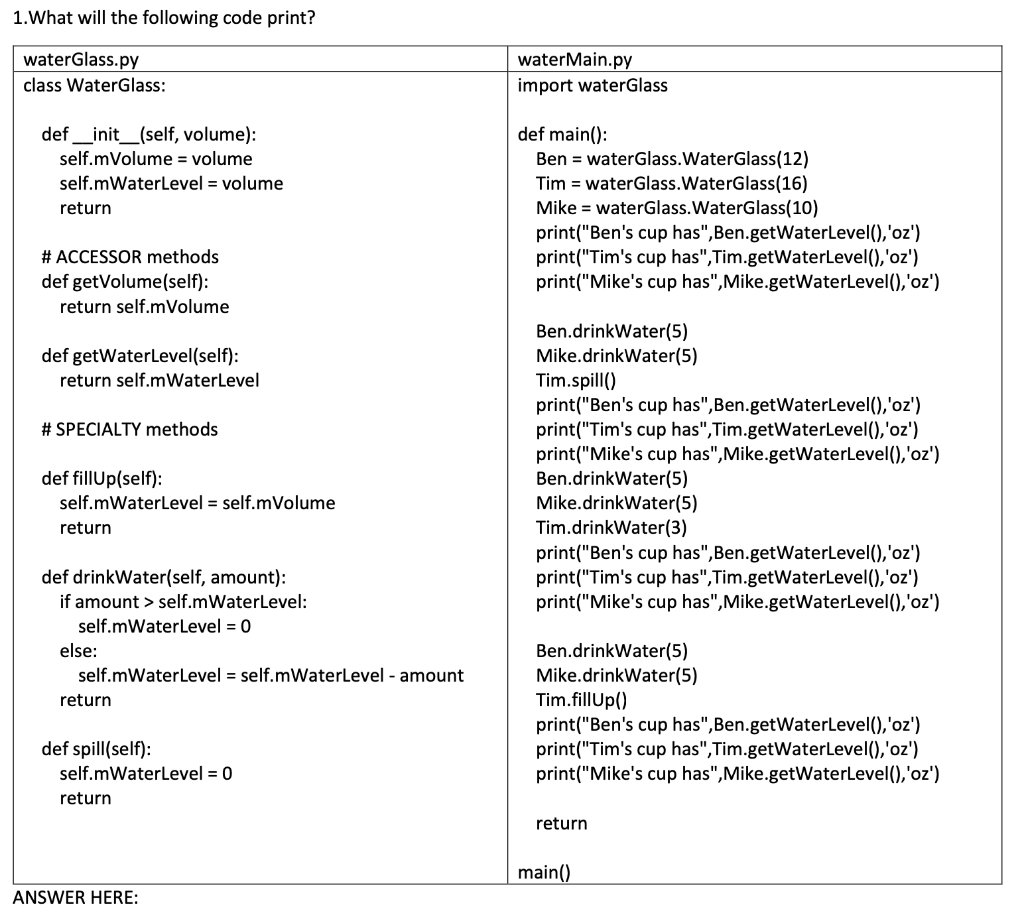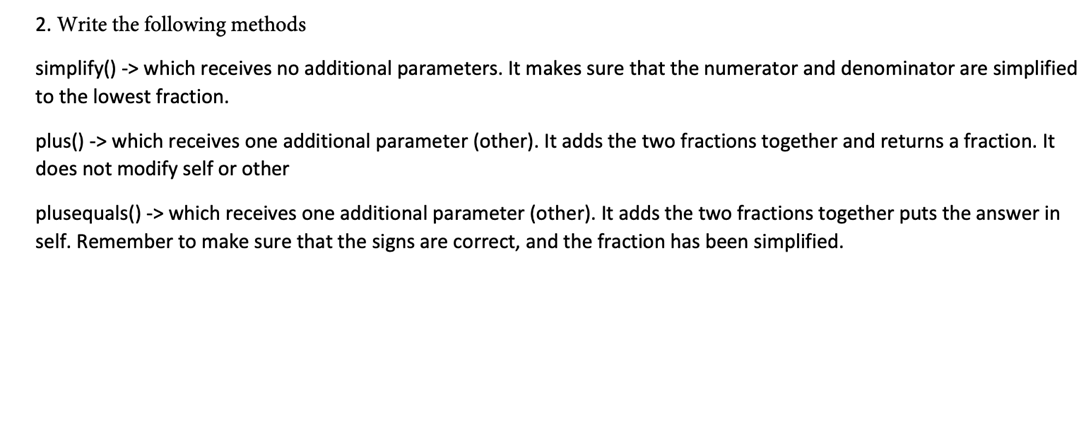Answered step by step
Verified Expert Solution
Question
1 Approved Answer
1.What will the following code print? waterGlass.py waterMain.py import waterGlass class WaterGlass: def main(): Ben = waterGlass.WaterGlass(12) Tim = waterGlass.WaterGlass(16) Mike = waterGlass.WaterGlass(10) print(Ben's


1.What will the following code print? waterGlass.py waterMain.py import waterGlass class WaterGlass: def main(): Ben = waterGlass.WaterGlass(12) Tim = waterGlass.WaterGlass(16) Mike = waterGlass.WaterGlass(10) print("Ben's cup has",Ben.getWaterLevel(),'oz') print("Tim's cup has",Tim.getWaterLevel(),'oz') print("Mike's cup has",Mike.getWaterLevel(),'oz') def _init_(self, volume): self.mVolume = volume self.mWaterLevel = volume return # ACCESSOR methods def getVolume(self): return self.mVolume Ben.drinkWater(5) Mike.drinkWater(5) Tim.spill() print("Ben's cup has",Ben.getWaterLevel(),'oz') print("Tim's cup has",Tim.getWaterLevel(),'oz') print("Mike's cup has",Mike.getWaterLevel(),'oz') Ben.drinkWater(5) Mike.drinkWater(5) Tim.drinkWater(3) print("Ben's cup has",Ben.getWaterLevel(),'oz') print("Tim's cup has",Tim.getWaterLevel(),'oz') print("Mike's cup has",Mike.getWaterlevel(),'oz') def getWaterLevel(self): return self.mWaterLevel # SPECIALTY methods def fillUp(self): self.mWaterLevel = self.mVolume return def drinkWater(self, amount): if amount > self.mWaterLevel: self.mWaterLevel = 0 Ben.drinkWater(5) Mike.drinkWater(5) Tim.fillUp() print("Ben's cup has",Ben.getWaterLevel(),'oz') print("Tim's cup has",Tim.getWaterLevel(),'oz') print("Mike's cup has",Mike.getWaterLevel(),'oz') else: self.mWaterLevel = self.mWaterLevel - amount return def spill(self): self.mWaterLevel = 0 return return main() ANSWER HERE: 2. Write the following methods simplify() -> which receives no additional parameters. It makes sure that the numerator and denominator are simplified to the lowest fraction. plus() does not modify self or other -> which receives one additional parameter (other). It adds the two fractions together and returns a fraction. It plusequals() -> which receives one additional parameter (other). It adds the two fractions together puts the answer in self. Remember to make sure that the signs are correct, and the fraction has been simplified.
Step by Step Solution
★★★★★
3.44 Rating (154 Votes )
There are 3 Steps involved in it
Step: 1
Ans 1 code Here i have commented the code to explain the steps waterGlasspy class WaterGlass Initialized the value in the constructor of the class WaterGlass def initself volume selfmVolume volume sel...
Get Instant Access to Expert-Tailored Solutions
See step-by-step solutions with expert insights and AI powered tools for academic success
Step: 2

Step: 3

Ace Your Homework with AI
Get the answers you need in no time with our AI-driven, step-by-step assistance
Get Started


